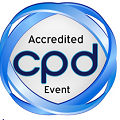
Hua-Wei Chen
Naval Medical Research Center, USA
Title: The development of lyophilized loop-mediated isothermal amplification reagents for the detection of Coxiella burnetii
Biography
Biography: Hua-Wei Chen
Abstract
Coxiella burnetii, the bacterium causing Q fever, is an obligate intracellular biosafety level 3 agent. PCR based diagnostic assays have
been developed for detecting C. burnetii DNA in cell cultures and clinical samples. Because PCR method requires specialized
equipment and extensive end user training, it is not suitable for routine work especially in the resource-constrained areas. We have
developed a loop-mediated isothermal amplification (LAMP) assay with lyophilized reagents to detect the presence of C. burnetii
in patient samples. This method can be performed at a single temperature around 60°C with a heating block. The sensitivity of this
LAMP assay is very similar to PCR method with a detection limit at about 25 copies. The amplified DNA products were visualized
with a naked eyes using hydroxynaphthol blue or addition of SYBR green dye in the reaction with a UV lamp. The stability of the
lyophilized reagents were tested and followed for 24 months, 18 months, and 42 days when the reagents were stored at 4°C, 25°C, and
37°C, respectively. The results showed the lyophlized reagents retain the same reactivity as freshly prepared reagents when stored at
4°C for 24 months, 25°C for 28 days, and 2 days at 37°C. The lyophilized LAMP reagents are perfect to be used in resource-limited
settings where Q fever is endemic

